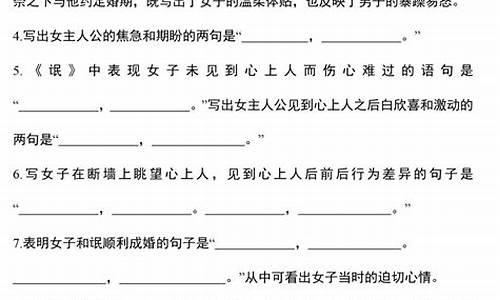您现在的位置是: 首页 > 教育政策 教育政策
河南省2017高考英语,2017河南英语试卷
tamoadmin 2024-05-16 人已围观
简介I work with Volunteers for Wildlife, a rescue and education organization at Bailey Arboretum in LocustValley. Trying to help injured, displaced or sick creatures can be heartbreaking; survival is neve

I work with Volunteers for Wildlife, a rescue and education organization at Bailey Arboretum in LocustValley. Trying to help injured, displaced or sick creatures can be heartbreaking; survival is never certain. However, when it works, it is simply beautiful.
我在“野生动物志愿者”组织工作,这是蝗虫谷贝利植物园的一个援救教育组织,帮助受伤、流离失所或生病的动物。这样的工作可能会令人心碎;因为无法确定动物是否能活下来。然而,当救援起作用时,这种感觉真的很棒!
I got a rescue call from a woman in Muttontown. She had found a young owl on the ground. When I arrived, I saw a 2-to 3-week-old owl. It had already been placed in a carrier for safety.
我接到马特顿镇一位女士的求救电话,她在地上发现了一只猫头鹰幼鸟。当我到达时,我看见了一只两三周大的猫头鹰。为了安全起见,它已经被放在一辆大货车上。
I examined the chick and it seemed fine. If I could locate the nest, I might have been able to put it back, but no luck. My next work was to construct a nest and anchor it in a tree.
我检查了这只幼鸟,看起来还不错。如果我能找到鸟巢,我也许能把它放回去,但没那么幸运。接下来的工作就是建造一只鸟巢,并固定在一棵树上。
The homeowner was very helpful. A wire basket was found. I put some pine branches into the basket to make this nest safe and comfortable. I placed the chick in the nest, and it quickly calmed down.
房主非常乐于助人,给我找来了一只铁丝篮。为了让鸟巢安全舒适,我把一些松枝放进铁丝篮里,然后我把小猫头鹰放进鸟巢里,它很快安静了下来。
Now all that was needed were the parents, but they were absent. I gave the homeowner a recording of the hunger screams of owl chicks. These advertise the presence of chicks to adults; they might also encourage our chick to start calling as well. I gave the owner as much information as possible and headed home to see what news the night might bring.
现在最需要的是这只小猫头鹰的父母,但它们不在。我给了房主一份小猫头鹰饥饿尖叫声的录音。这些录音会让猫头鹰父母知道小猫头鹰的存在,也会鼓励小猫头鹰学着尖叫。我把尽可能多的消息告诉了房主,然后回家,看看晚上会有什么情况。
A nervous night to be sure, but sometimes the spirits of nature smile on us all! The homeowner called to say that the parents had responded to the recordings. I drove over and saw the chick in the nest looking healthy and active. And it was accompanied in the nest by the greatest sight of all — LUNCH!The parents had done their duty and would probably continue to do so.
这的确是一个紧张的夜晚,但有时大自然的神灵会眷顾我们!房主打电话说小猫头鹰的父母已经对这些录音做出了回应。我开车过去,鸟巢里的小猫头鹰看起来健康又活泼。鸟巢里出现了最令人感动的一幕——小猫头鹰的身边全是午餐!它的父母已经在尽职尽责,而且很可能会继续这样做。
高考英语阅读理解精品训练2017
近几年高考英语阅读主要有猜测词义、理解主旨大意、推理判断、对文章的细节理解、 数据推算等几种题型。为了帮助大家备考高考英语阅读理解题,我分享了一些高考英语阅读理解练习,希望能对大家有所帮助!
阅读理解练习1
Not many years ago, a wealthy and rather strange old man named Johnson lived alone in a village in the south of England. He had made a lot of money in trading with foreign countries. When he was seventy?five, he gave ? 12,000 to the village school to buy land and equipment (设备) for a children?s playground.
As a result of his kindness, many people came to visit him. Among them was a newspaperman. During their talk, Johnson remarked that he was seventy-five and expected to live to be a hundred. The newspaperman asked him how he managed to be healthy at seventy?five. Johnson had a sense of humour (幽默). He liked whisky (威士忌酒) and drank some each day. ?I have an injection (注射) in my neck each evening.?he told the newspaperman, thinking of his evening glass of whisky.
The newspaperman did not understand what Johnson meant. In his newspaper he reported that Johnson was seventy?five and had a daily injection in his neck. Within a week Johnson received thousands of letters from all over Britain, asking him for the secret of his daily injection.
1. Johnson became a rich man through
A. doing business. B. making whisky. C. cheating. D. buying and selling land.
2. The gift of money to the school suggests that Johnson
A. had no children. B. was a strange man.
C. was very fond of children. D. wanted people to know how rich he was.
3. Many people wrote to Johnson to find out
A. what kind of whisky he had. B. how to live longer.
C. how to become wealthy. D. in which part of the neck to have an injection.
4. The newspaperman
A. should have reported what Johnson had told him.
B. shouldn?t have asked Johnson what injection he had.
C. was eager to live a long life.
D. should have found out what Johnson really meant.
5. When Johnson said he had an injection in his neck each evening, he really meant that
A. he liked drinking a glass of whisky in the evening.
B. he needed an injection in the neck.
C. a daily injection in the evening would make him sleep well.
D. there was something wrong with his neck.
阅读理解练习2?I?m very tired from working here,?said Jean to her friend Kate,? I?m on my feet from morning to night. For the first quarter of the day, I clean up the counter (柜台) and set the tables. For the next quarter, I help in the kitchen. For the second half of my workday, I take orders at the counters.?
?Kate, I wish I had your job,?Jean went on. ?For four hours you just sit at the cash register (收款台) taking in money.?
?But I spend two more hours in the kitchen (厨房) than you do,?said Kate. ?It?s tiring to cook over a hot stove. I don?t think you?d really want my job. In fact, I?d like your job.?
1. Both Jean and Kate probably work in a
A. hotel B. library C. lab D. shop
2. How long did they work every day?
A. eight hours B. twelve hours. C. Ten hours D. Nine hours
3. How long did Kate spend in the kitchen?
A. a quarter day. B. A half day. C. One-third day. D. Three-fourths day.
4. From this passage we can see that
A. they are both interested in their work. B. their work is neither tiring nor busy.
C. both of them are tired of their work. D. they?ve decided to give up their work.
5. Give a proper proverb (谚语) to Jean and Kate.
A. It?s never too late to learn.
B. It?s no use crying over spilt milk.
C. The grass is always greener on the other side.
D. One swallow(燕子) does not make a summer.
阅读理解练习3In 1985 a French television company sent its reporters to the Paris Metro. They took cameras to see what passengers would do if they saw someone attached on the platform or in the trains. They acted out incidents. The incidents looked real but they were all done with the help of actors. However, very few people tried to help, and most passengers pretended not to notice. in one incident, a foreigner was attacked by three men. The attack was on a train which was quite full, and although one man tried to get the passengers to help, they all refused. It seems that such behaviour(行为) is not unusual, but the question is why? Is it a problem of big cities, or would the same thing happen anywhere? To discuss these questions, we have in the studio(演播室) Professor Wilson, who is an expert on the subject?
1. Who did the experiment?
A. A French television company. B. The Paris Metro.
C. The City Government of Paris. D. Professor Wilson.
2. What did the experiment try to find out?
A. How a foreigner was attacked on the train.
B. How passengers helped each other on the platform.
C. Passengers? reactions towards incidents.
D. Actors? performances during incidents.
3. What was the finding of the experiment?
A. Passengers helped a lot during incidents.
B. Very few foreigners were on the train.
C. Very few passengers tried to help during incidents.
D. Some people were good at acting on the train.
4. Who do the underlined words one man refer to?
A. One of the three men who attacked a foreigner.
B. One of the actors who took part in the experiment.
C. One of the passengers who were on the train.
D. One of the reporters who were sent to the Paris Metro.
参考答案:
1A 2 C 3 D 4 D 5 A
1A 2 A 3 B 4 C 5 C
1D 2 C 3 C 4 B
;








